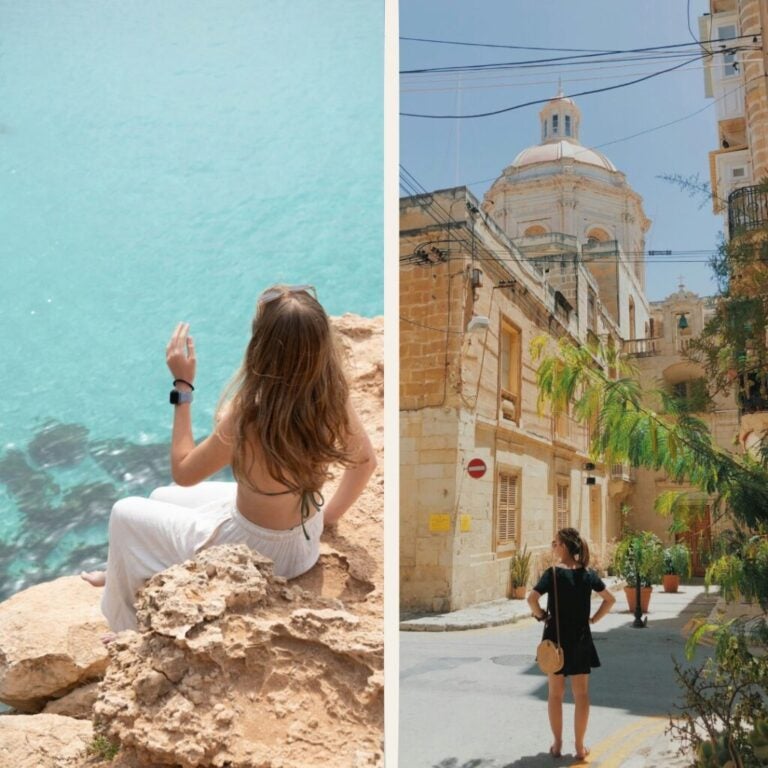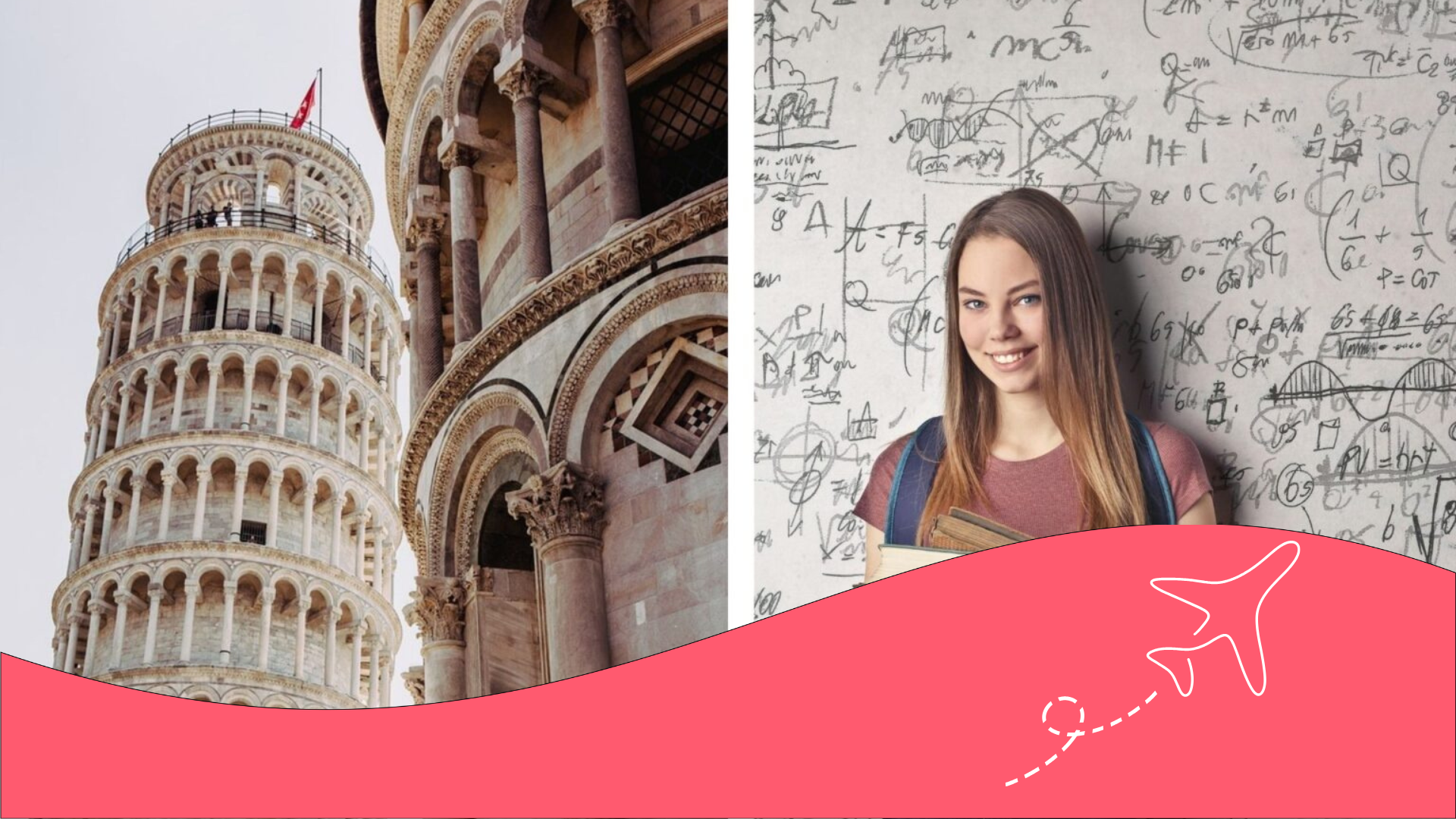Scholarship in Malta: Learn all the requirements
Find here information about scholarships to study in Malta, the best options, requirements, how to apply and much more.
If you need information about scholarships to study in Malta, you will find plenty of options here to suit your needs. Malta offers a wide range of educational programmes tailored to different student profiles from around the world. This country is an exciting destination for international students, with many scholarship opportunities from the government and educational institutions.
Whether you want to learn a second language, specialise in your career, expand your job prospects or live a global experience, Malta is a great choice. By following the steps in this article, you can apply for a scholarship to study in Malta.
The best scholarships to study in Malta
Malta offers a broad variety of scholarships supporting both local and international students at different educational levels. Opportunities range from undergraduate programmes to doctoral studies. Below, we present some of the top scholarships for 2025, designed to make higher education more accessible in Malta. These scholarships focus on key areas like technology, sciences, humanities and sustainable development, which are priorities for Malta’s education system.
Scholarships to study: Malta Government Scholarship Scheme
Overview:The Malta Government Scholarship Scheme is a national initiative aimed at promoting higher education and attracting international students. It encourages academic growth and cultural integration by focusing on strategic areas such as technology, sustainable tourism and social sciences.
General requirements:
- Achieve a minimum average of 80% in previous studies.
- Be admitted or hold an offer letter from a recognised educational institution in Malta.
- Present a detailed study plan that explains how the scholarship will contribute to your personal and professional development.
- Have a strong command of English (with a TOEFL or IELTS certificate, depending on university requirements).
Coverage and benefits:
- Full payment of tuition fees at the chosen university.
- Monthly allowance to cover accommodation and living expenses.
- Transport subsidy for local travel.
- Medical insurance coverage.
Type of studies offered:
- Undergraduate degree programmes.
- Master’s degrees in various fields.
- Doctorates in specific disciplines.
Aimed at:
- International students of any nationality.
- Individuals aged between 18 and 35 years.
- Professionals interested in fields with social and economic impact in Malta.
How to apply:
Applications must be submitted through the official portal of the Ministry of Education of Malta. Therefore, candidates must create a profile, upload the required documents (academic records, acceptance letter, language certificate, among others) and complete an online form.
Opening date: January each year.
Closing date: May each year.
Scholarships to study: Erasmus+ Scholarships for Malta
Overview
The Erasmus+ programme is one of the European Union’s most recognised initiatives, and Malta actively participates as an EU member. This scholarship suits students wishing to join academic exchanges or complete full programmes at Maltese institutions. Besides its academic focus, Erasmus+ promotes cultural learning and student mobility across Europe. If you plan to live temporarily in Malta, we recommend our unlimited data plans to stay connected effortlessly.
General requirements:
- Be a citizen of an EU member or associated country.
- Be enrolled at an educational institution that participates in the Erasmus+ programme.
- Maintain a minimum academic average of 75% in previous studies.
- Provide a motivation letter explaining how studying in Malta will benefit your academic goals.
Coverage and benefits:
- Partial or total exemption from tuition fees.
- Financial support for accommodation and living expenses (amount varies by country of origin).
- Transport subsidy for international travel.
- Access to cultural and academic activities organised by Erasmus+.
Type of studies offered:
- Exchange programmes for undergraduate and master’s students.
- Short-term professional training courses.
Aimed at:
- Undergraduate, master’s and doctoral students.
- Citizens of EU countries and those associated with the Erasmus+ programme.
- People of all ages interested in academic learning and mobility.
How to apply?
You must apply through your home university. Coordinate with your international relations office and complete the Erasmus+ application form. You can find specific information about Malta programmes on the official Erasmus+ portal.
Opening date: March each year.
Closing date: June each year.
Tips on how to get a scholarship in Malta
Winning a scholarship to study in Malta can be life-changing. However, it requires preparation and a good understanding of the local system. Here are some expert tips to boost your chances of success when applying for a scholarship in Malta:
1. Understand Malta’s educational priorities
The Maltese education system focuses on strategic areas such as sustainable tourism, IT, marine sciences and cultural studies. First, research which programmes are most relevant in Maltese institutions. Then, align your academic goals with these areas. Showing how your education will support these priorities can greatly strengthen your application.
2. Focus on language certifications
Although English is the official language at most Maltese institutions, many scholarships require specific certificates like TOEFL or IELTS. Therefore, invest time in achieving a competitive score and highlight it in your application. Since Malta is also famous for English learning, you could mention your interest in improving your language skills if relevant.
3. Highlight your interest in Maltese culture and history
Malta has a rich cultural heritage that attracts students interested in archaeology, history, and Mediterranean studies. If you apply for related programmes, include in your motivation letter how you plan to explore and contribute to the local culture.

4. Join European student mobility networks
Since Malta is a European Union member, it’s deeply connected to programmes like Erasmus+. Therefore, consider joining mobility networks or seminars, and contact international offices at your university for direct scholarship information.
5. Submit a detailed study plan
Scholarship applications in Malta value candidates with clear goals and structured plans. Clearly explain how you’ll use the scholarship to advance academically, professionally, and personally. Emphasise how your skills will benefit Malta’s academic environment.
6. Respect application deadlines
Many scholarships in Malta have strict deadlines, and late applications are not accepted. Mark key dates in your calendar and submit your application early. Demonstrating good organisation and commitment can impress the selection committee.
Important: If you are a frequent traveler and want to stay connected without worrying about expensive roaming or looking for a new SIM at every destination, Holafly’s subscription plans are for you. With a single eSIM, enjoy internet in more than 170 countries for a fixed price and no surprises on your bill. Travel without limits and connect easily and securely! 🚀🌍

Top universities to study in Malta
Malta hosts several institutions recognised for their academic quality and innovative approach across different fields. Below, you’ll find the top universities in Malta and their recommended courses:
1. University of Malta
Description: Founded in 1592, it’s Malta’s main higher education institution and one of the oldest universities in Europe. It’s known for research excellence and strong academic traditions.
Recommended degrees:
- Environmental and Marine Sciences: Focused on ecosystem conservation and sustainable development.
- Information Technology: Malta is a growing tech hub in Europe, and the university offers advanced programmes.
- Mediterranean Studies: Ideal for exploring the region’s history, culture, and geography.
Key features:
- Modern facilities and specialised laboratories.
- Exchange programmes with EU universities.
- A vibrant international community.
2. Malta College of Arts, Science and Technology (MCAST)
Description:MCAST focuses on technical and vocational education, offering practical programmes linked to the job market.
Recommended degrees:
- Engineering: Specialisations in renewable energy and mechanics.
- Tourism Management: A strategic career path in a country driven by tourism.
- Graphic and Multimedia Design: Catering to Malta’s growing creative industry.
Key features:
- High employability rate for graduates.
- Strong partnerships with local and international companies.
- Flexible programmes for international students.
3. Institute for Tourism Studies (ITS)
Description:
ITS specialises in preparing students for careers in the tourism industry, with strong ties to leading companies.
Recommended degrees:
- Hotel Management: Focused on leadership and hospitality business operations.
- International Cuisine and Gastronomy: Culinary training at a global level.
- Sustainable Tourism: Combining ecology and tourism management.
Key features:
- Professional internships with renowned hotels and restaurants.
- Extensive industry networking opportunities.
- State-of-the-art training facilities.
4. European Institute of Education (EIE)
Description: EIE is known for its focus on business education and technology, offering international career-oriented programmes.
Recommended degrees:
- Business Administration: With a global leadership and innovation perspective.
- Financial Technology (Fintech): Designed for today’s digital economy.
- Project Management: Essential for international project leadership roles.
Key features:
- Programmes tailored for international students.
- Experienced academic and corporate professionals.
- Academic and corporate partnerships across Europe.

Frequently Asked Questions about scholarships to study in Malta
In this section we answer some of the most common questions about the scholarships available to study in Malta. These answers summarise key points from the article and offer additional guidance for those interested in taking advantage of these educational opportunities.
The most comprehensive scholarship depends on your study programme and personal needs. In addition to those mentioned earlier, the Commonwealth Scholarship stands out. It covers full tuition fees, accommodation, transport, and a monthly stipend for living expenses. Moreover, it supports both undergraduate and postgraduate studies for students from Commonwealth countries.
Yes, several scholarships fully cover education costs such as tuition, accommodation, and sometimes even flights. Some examples include:
Erasmus Mundus Joint Master Degrees, which fund master’s programmes with Maltese universities and Institute for Tourism Studies (ITS) Scholarships, which often cover tuition and provide professional practice support.
Always read each programme’s terms carefully, as some may require work commitments in Malta after graduation.
Although each scholarship has specific criteria, common requirements include: A
minimum academic average (usually strong academic performance in previous studies), English
language certification (typically IELTS or TOEFL) and an acceptance letter from a recognised Maltese institution.
Additional documents such as recommendation letters, personal essays, and a detailed study or research plan.
Make sure you meet every criterion and submit all documents on time.
To stand out from other candidates, you should:
Research thoroughly: understand each institution’s priorities and tailor your application accordingly.
Write a strong motivation letter: clearly explain how your goals align with the scholarship’s mission and Malta’s education system.
Prepare a detailed study plan: show how you will use the scholarship to contribute to your field and to Malta’s community.
Respect deadlines: submitting a complete application on time is critical.
Scholarships in Malta support a wide range of studies, including:
Undergraduate degrees: Ideal for students pursuing their first university qualification.
Postgraduate degrees: Including master’s and PhD programmes in fields such as technology, tourism, Mediterranean studies, and environmental sciences.
Technical and professional programmes: Mainly offered by institutions like MCAST and ITS.
English language courses: some scholarships also fund intensive English language courses for international students.
If you don’t receive a scholarship, consider these alternatives:
Educational loans: Some banks offer loans with special rates for international students.
Part-time jobs: Malta allows international students to work up to 20 hours a week.
Additional scholarship opportunities: Keep checking for new funding options throughout the year.
Exchange programmes: Schemes like Erasmus+ can offer partial funding and valuable international experience. With proper planning and persistence, you can still achieve your academic goals in Malta.
No, you don’t need to speak Maltese to study in Malta. English is an official language and the main language of instruction in most institutions. However, learning some basic Maltese phrases can help you connect better with the local community.
Some scholarships, like those offered through Erasmus+, may provide funds that cover visa-related costs. However, not all scholarships include this benefit, so always check the terms and conditions carefully.
Yes, you can apply for multiple scholarships if you meet the eligibility criteria for each one. However, if you’re selected for more than one, check the rules. Some scholarships don’t allow you to combine financial aid from different sources.





 Language
Language 


















 No results found
No results found







